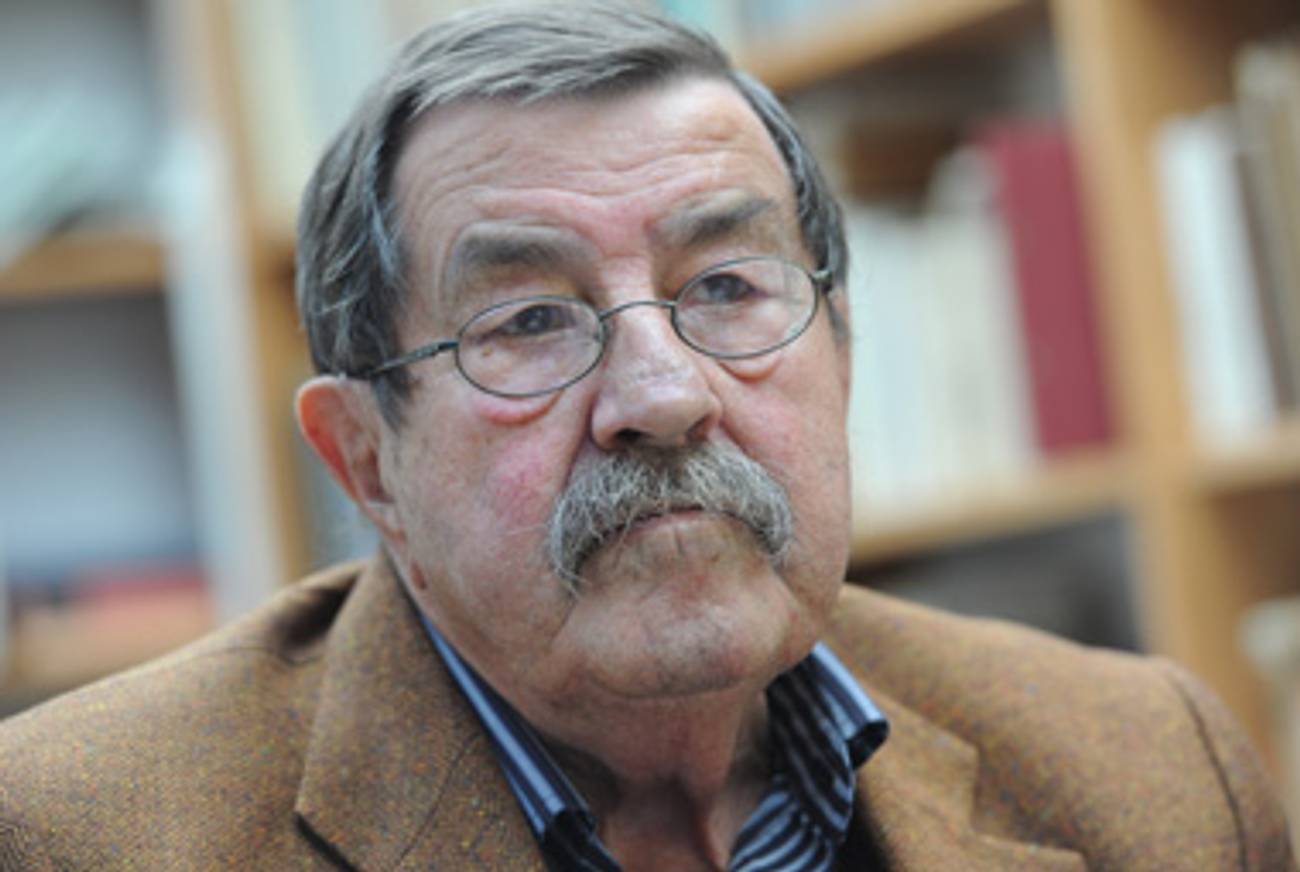Günter Grass’ Stupid Poem About Israel and Iran
And how it is only a symptom of a larger German problem




Günter Grass, the 84-year-old German novelist who won a Nobel Prize in part for ostensibly reckoning honestly with Germany’s Nazi past (and who many years later revealed that, rather than having been a young bystander, he was in the Waffen-SS), yesterday published a poem accusing Israel rather than Iran of being the prime threat to regional stability, since it already has nuclear weapons. “It is the claimed right to a first strike/that could wipe out an Iranian people,” he writes, “subjugated by a loudmouth and steered to organized jubilation/because the building of an atom bomb is suspected in their territory.” (Why this complex geopolitical argument is best expressed in verse, I haven’t the faintest.) And now that Prime Minister Netanyahu has responded, the story won’t go away so easily. “Grass’s shameful moral equivalence between Israel and Iran, a regime that denies the Holocaust and threatens to annihilate Israel, says little about Israel and much about Mr. Grass,” the prime minister said.
He’s right. Tom Segev explains it succinctly: “unlike Iran, Israel has never threatened to wipe another country off the map. And contrary to Grass’ sanctimonious verses, under no circumstances would a military action against Iran lead to the extermination of the Iranian people, because as far as we know, it would exclusively target the country’s nuclear facilities.”
An interesting thing to know—not because it obviates the blatant bias in the silly poem, but because it is, well, interesting—is that the poem was provoked by Germany’s sale of a nuclear submarine to Israel. In other words, in Grass’ head and in his argument, this is about Germany helping to enable another bit of cataclysmic destruction. As the memory of the Holocaust recedes and the generation who actually lived during it dies out, German guilt is being replaced by German resentment—or, as Germany’s greatest anti-anti-Semite would have put it, Ressentiment—and so where Grass, the innocent, was Germany’s moral conscience, now Grass, the former SS member, is Germany’s spiritual pride. The poem “expresses a sense of anger against Israel that—justified or not—many Germans seem increasingly to share,” reports Hans Kundnani at the Guardian. He adds: “Increasingly, Germans seem to see themselves as victims rather than perpetrators. … anger against Israel is exacerbated by the sense some Germans have of not being able to say what they really think—as Grass suggests in the poem” (which is called “What Needs To Be Said”).
At Heeb, Fabian Wolff has an excellent take as well as a fuller translation. “Actually,” Wolff writes, the poem “is about a cranky and dirty old German who is so sick of being constantly reminded of the Holocaust by the world and his own guilt that he constructs the possibility of another Holocaust—this time, perpetrated by the former victims—just so he can feel better and righteous once again.” The world’s not going to buy it, and I bet his own guilt ultimately won’t, either.
Prime Minister Netanyahu Comments on the Hateful Poem by Günter Grass [Prime Minister of Israel/Facebook]
Günter Grass’ Poem Is More Pathetic Than Anti-Semitic [Haaretz]
Should We Care About Günter Grass’ Vaguely Anti-Semitic German Poetry? [Heeb]
Günter Grass and Changing German Attitudes Toward Israel [Guardian]
Marc Tracy is a staff writer at The New Republic, and was previously a staff writer at Tablet. He tweets @marcatracy.